Flags of the OECD Members – © OECD
It’s not easy to hide behind something that is only between 50 and 140 nanometres wide, but a surprisingly large number of people have done so, or tried to. What’s more, they tend to be quite big people, at least in their own estimation. Their tiny hiding place is the SARS-CoV-2 virus, cause of COVID-19 in all its varieties, and the perfect excuse it provides to introduce severe restrictions on freedom in the knowledge that it has to be done to save lives. The laws are essential and good for us, but only as long as they’re strictly temporary… The people hiding behind this tiny organism are, however, very often the despotic leaders who seem to be introducing ever more draconian rules that many fear will still be in force long after the virus has disappeared.
Such things have happened before in even worse epidemics. Take the Black Death, for instance, caused by the Yersinia pestis bacterium, which is very slightly larger than SARS-CoV-2 (but still microscopic). It’s an ovoid structure measuring up to 3 micrometres in total length. Between the years 1348 and 1350, this tiny living organism, which causes bubonic plague, killed roughly a third of the population of England. The disease made its way there, hosted by fleas on the rats infesting trading ships. It is thought to have originated – probably, but not certainly – in China and made its way to Europe via India, Persia, Syria and Egypt, infecting them all as it went. When it reached Sicily, on a vessel found to contain mainly dead or dying sailors, it quickly spread across Europe, reportedly killing some twenty million people, despite the vessel being denied permission to dock. Many saw it as God’s punishment for mankind’s wickedness and non-Christians faced vicious persecution as a result. The Scots did, and took the opportunity to attack northern England, taking back the Black Death as an unfortunate souvenir. Inevitably, it led to changes in the law, although not designed to halt its spread, because nobody knew what it was. In any case, hygiene was not much of an issue then, with people emptying their chamber pots into the street from upstairs windows and allowing their pigs to roam at will. Even when the plague seemed to retreat, it was only a temporary respite. It came back in 1361-64, 1368, 1371, 1373-75, 1390, 1405 and continued into the fifteenth century.
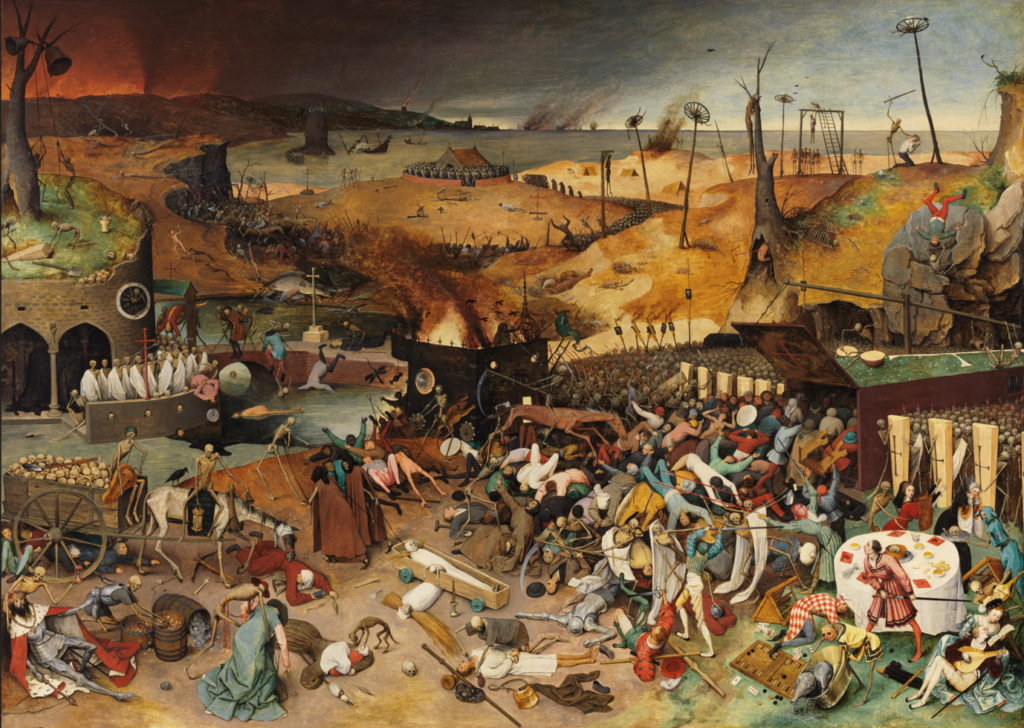
In England, this loss of so many of the mainly working population, strengthened the hand of those who had served the great landowners as serfs or slaves on starvation pay at best. They wouldn’t work without adequate reward for their labour afterwards, which obliged the government (invariably the rich) to try to impose some controls. Their aim was to control the class structure of England and also interclass relations. “These changes thereby qualitatively transformed the English government,” wrote Robert C. Palmer of the University of North Carolina in 1993, “into a government of ‘inherent authority’, meaning that the newly intrusive government, ‘took responsibility for the regulation and direction of the whole of society’.” The government steadily increased its power and, wrote Palmer, “fostered a spirit of trust and cooperation among Edward (King Edward III, arguably one of England’s better historical kings), the nobility, and the clergy.” So, a more modern system of governance emerged from this massive tragedy. In other words, we owe a more up-to-date system of running a country to a tiny organism, just 1 to 3 micrometres long. The long-term changes resulting from Covid-19 may not prove quite so beneficent.
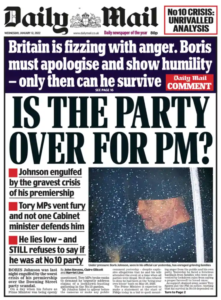
Of course, we need to observe social distancing to avoid passing on this nasty little killer virus, just as we should be willing to wear breath masks, even if they steam up one’s glasses, to ensure we don’t spread it to others. Having a vaccination, if possible, also seems an eminently sensible move. Britain’s Prime Minister, Boris Johnson, felt obliged to offer a public apology for allegedly attending a drinks party at 10 Downing Street, at which it’s claimed lockdown rules were flaunted, on the eve of the funeral of Prince Philip, the Duke of Edinburgh.
The next day, his widow, Queen Elizabeth was pictured sitting alone in church by her husband’s coffin, isolating herself from other people. The affair did nothing to restore public confidence in the British government or its leader. It has since been revealed that London’s Metropolitan Police are investigating twelve separate get-togethers at Downing Street (the media call it ‘partygate’), at which at least 5 (and possibly more) were said to have been attended by Johnson. Detectives are trawling through 500 pages of evidence and more than 300 photographs, all of which delays the publication of an internal report by civil servant Sue Gray, much to Johnson’s presumed relief.
LAW AND DOGMATIC ORDER
Of course, laws have been introduced in Britain and elsewhere to ensure people stay a safe distance apart, if possible, and try to avoid catching and spreading COVID-19. The EU refers to them as “emergency powers” and they were and still are clearly necessary. However, some political leaders around the world who favour being in complete charge of everything and controlling their citizens rather more firmly have taken the opportunity to introduce laws in the guise of anti-virus measures that actually serve to ensure obedience without demur in every circumstance. The European Parliament anticipated this sort of thing and in April 2020, it set limitations to such emergency measures, taken in relation to the pandemic. Its decision states that: “all measures taken at national and/or EU level must be in line with the rule of law, strictly proportionate to the exigencies of the situation, clearly related to the ongoing health crisis, limited in time and subjected to regular scrutiny”. Not everything has gone according to plan, the Parliament says: “According to critics, some governments have used the emergency situation as an excuse to propose and approve controversial pieces of legislation that jeopardise freedom of expression or which are unrelated to the fight against Covid-19.”
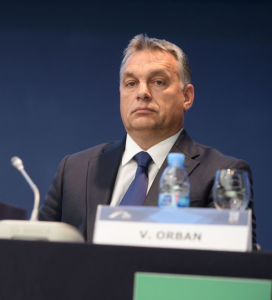
MEPs are especially unhappy with a decision by the Hungarian government to “prolong the state of emergency indefinitely, to authorise the Government to rule by decree without time limit and to weaken the emergency oversight of the Parliament.” Prime Minister Viktor Orbán quickly dismissed opposition concerns about their scope but the press freedom pressure group Reporters Without Borders warned that: “If approved, this new law would grant the Hungarian government a convenient tool to threaten journalists and intimidate them into self-censorship. We fear this is a step toward the complete repression of media freedom in Hungary that could outlive the pandemic.” Such abstractions were, in the prime minister’s words: “irrelevant in the midst of a health crisis.”
A number of member states agreed that “in this unprecedented situation, it is legitimate that Member States adopt extraordinary measures to protect their citizens and overcome the crisis. We are however deeply concerned about the risk of violations of the principles of rule of law, democracy and fundamental rights arising from the adoption of certain emergency measures.” It certainly isn’t a ringing endorsement of Orbán’s decisions. The CapX website says that Hungary’s citizens: “should be alarmed by Orbán’s increasing centralisation of power and his party’s routine reallocation of funds towards oligarchs and loyalists. Those abroad who may have overlooked Orban’s misuse of European funds for government projects – not least the €2bn spent on the ‘train to nowhere’ Val Valley Railway – must now accept that in Hungary the EU faces an administration with little regard for the bloc’s common values or rulebook.” Hungarian media outlets are targeted by Orbán’s regime, but they did uncover: “the subsidies made available for the country’s tourism sector in response to the pandemic – and, specifically, the ‘Kisfaludy Program’, which provides non-refundable state grants for the construction and development of hotels, apartments, and other tourism-related providers. In the spring of 2020 the Hungarian Tourism Agency (MTÜ) distributed HUF 83,5 billion (€0.232-billion), in support to the sector.” Don’t forget: Orbán takes these decisions without a parliament to approve or condemn them. The developers must have loved him.
A Harvard University investigation, albeit from May 2020, noted other irregularities in the Far East: “In South Korea, the government has begun to track the movements of individuals who have tested positive (for SARS-CoV-2), displaying their location data on a publicly accessible website without [revealing] their names. In line with cultural preferences for the collective, many other Asian governments have followed South Korea’s lead.” The report is even more concerned about China.
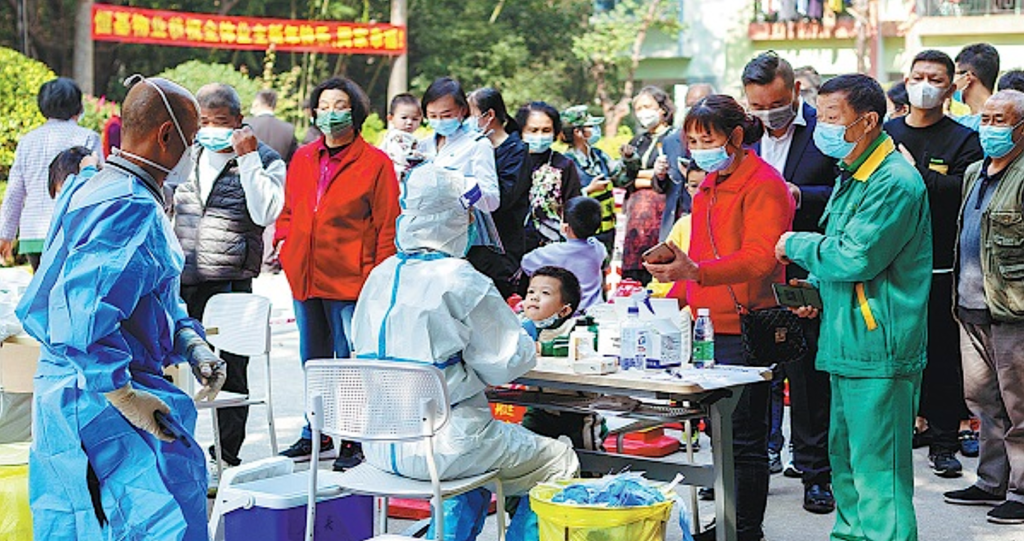
“A new health code system assigns individuals a colour—green, yellow, or red—based on their risk of carrying the virus,” it says. “Those who are assigned yellow are required to self-quarantine, while those who receive red have their location sent to the police immediately. In almost all public places, including the subway, markets, and workplaces, showing a green code is a prerequisite to entry.”
GET RICH OR DIE? PROBABLY THE LATTER
Back in Europe, the European Parliament has also queried the steps taken by the Polish Government, namely changing the electoral code against the judgment of Constitutional Tribunal and provisions laid by law in order to hold Presidential elections in the middle of a pandemic, which may endanger the lives of Polish citizens and undermine the concept of free, equal, direct and secret elections as enshrined in the Polish Constitution. So, what about the pandemic? The Wrocław temporary hospital is part of an extensive chain of medical facilities that support Poland’s health care service in the fight against the pandemic, which affects Poland as it does other EU countries. Such facilities are typically set up in convention centres and sports halls and as many as 19 such temporary hospitals are active, with 16 more standing by to be called rapidly into service if needed. The hospital is capable of providing effective assistance to anyone in need.
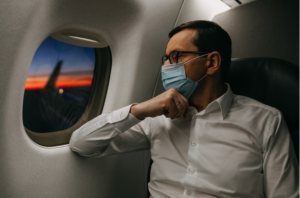
After visiting the facility, Prime Minister Mateusz Morawiecki said: “I spoke with the Rector, and he assured me of the hospital’s readiness to utilise high-flow mechanisms as well, which are ventilation mechanisms that can help patients to avoid having to use respirators.” He said there was no risk of the facility running out of essential supplies: “The entire oxygen system set up here is well prepared from a technical standpoint – it is a major reserve for the long months ahead of us”. More than 77,000 Poles had died of COVID-19 by November last year. The EU, which has widespread support among Poles, would love to help, but it is in dispute with the Polish government, which insists that its own laws are more important that the EU’s own, which it chooses to ignore, even taking to court those who question this position.
The far-right Confederation, Liberty and Independence party was recently banned by Facebook for publishing misinformation about COVID-19 and also hate speech. Although the party doesn’t draw a lot of votes, its website had 670,000 followers, making it one of Poland’s most popular. The site had cast doubt on the efficacy of face masks and vaccines and even claimed that COVID-19 was no worse than influenza in terms of causing deaths. Facebook issued several warnings before removing the party’s account, but that decision inevitably drew criticism. One of its leaders, Krysztof Bosak said in an interview that he would sue Facebook for “interference aimed at narrowing the freedom of political choice before the upcoming political season.”
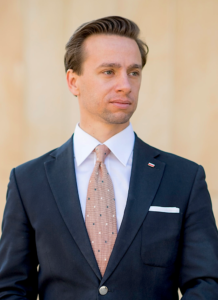
Strangely, the figure who came to the far-right party’s defence was the Prime Minister, Morawiecki, who described Facebook’s action as ‘cyber censorship’ and arguing that removing the Confederation’s hate-filled page “breaches basic democratic values”. If the EU is hoping for the current row over whose laws count the most will die down, there would appear to be little sign of it there. Morawiecki, appears determined to appear tough.
Other emergency measures adopted by some member states include limits on international travel, sanitary controls, the closures of schools, universities, shops and public spaces and the confinement of people in their own homes. There is also concern about contact tracing and tracking, which could (and probably will) impact on privacy and data protection standards and airlines are said to believe that the use of face masks during its flights may remain compulsory for many years.
Although some European countries are now relaxing their rules, others are less willing to do so. Albania, for instance, has a night-time curfew from 11 pm until 6 o’clock in the morning (which must be inconvenient for people working night shifts), as well as the obligatory wearing of face-masks while indoors or on public transport. Denmark has scrapped most of its restrictions, despite a reported 50,000 cases a day of the Omicron variant in Copenhagen alone. More than 80% of the population have been vaccinated, however, with 60% have had booster jabs. Meanwhile Austria has made vaccination mandatory for over 18s, with exemptions in the case of pregnant women and those who have specific medical conditions. Russia saw its infection rate rise eight-fold over the course of January to a terrifying 121,000 per day, but no nationwide lockdown is under consideration, according to the Kremlin.

In any case, COVID-19 may have been around in Europe for longer than we thought, according to Euronews, which has reported that: “Scientists at Akershus University Hospital near Oslo identified a positive coronavirus result in a blood sample taken from a pregnant woman on 12th December 2019 and say she was probably infected at the end of November or the beginning of December.” The weekly on-line publication, Eurosurveillance revealed that: “The novel SARS-CoV-2 variant Omicron was first detected in samples collected in mid-November 2021 in Botswana and South Africa”. It also said that all of those who tested positive on that occasion had been at a party in Oslo on 26 November last year. Roughly 80% of those found to be infected had been fully vaccinated.
TOUGHER AND TOUGHER
Let’s look at some of the newer COVID-19 restrictions. In Germany, unvaccinated citizens face lockdowns that will bar them from entering public spaces. They will only be allowed into essential businesses, such as pharmacies. Nor can they meet with more than two people from outside their household, even on private premises. Australians who have travelled abroad are confined to state-run quarantine facilities that the government refers to as ‘Centres for National Resilience’, although others call them COVID-19 camps. Anyone seeking to escape faces jail. An Australian woman called Hayley Hodgson was placed in a Covid internment camp despite testing negative for the virus. “She was confined to a box for 14 days,” reports Max Blumenthal, “offered valium when she complained about confinement, and lost her job. ‘You feel like you’re in prison’,” she told Blumenthal. There are reports of people trying to climb barbed wire fences to escape and a disturbing story appeared in The Daily Signal: “In one sickening case, Australia’s COVID-19 restrictions prevented a grieving family from traveling across a state border to identify their son’s dead body.

Israel imposed a 2-week ban on non-Israelis entering the country. It also added a number of African countries to its ‘red list’. We’ll come to Africa’s situation shortly. In the United States, New York Mayor Bill de Blasio ordered all workers to get vaccinated or be put on unpaid leave. President Jo Biden has ordered companies to get their workers vaccinated or face hefty fines. In France and Greece health care workers must be vaccinated, although plans for a similar policy in the UK have been dropped, largely because of threats by some health workers to quit when there is already a shortage. Vaccination as a condition of holding down a job is already the rule in Fiji and Costa Rica, among other places.
The pandemic has been the cause of much misinformation, false propaganda and – let’s face it – outright lies. Keeping abreast of reality hasn’t been helped by restrictions placed on journalism while there have also been untrue government statements from various places. The journalistic campaign group, Reporters Without Borders (RWB), has sent a letter to the presidents of the European Commission, Council and Parliament, which it says is to: “to express its profound concern about the risk that governments use the COVID-19 pandemic to undermine fundamental rights and free flow of information.” RWB demands that the leaders of a country should not be allowed to hide behind the virus: “In a period when our citizens’ fundamental rights are being suspended around Europe, the need for media scrutiny to ensure no abuse of these new powers [is] stronger than ever,” they warn. “We therefore call on you to use the power of your offices to ensure that fundamental human rights and press freedom will be guaranteed as the European Union strives to tackle the COVID-19 pandemic.” Not every leader will take much notice, I fear.
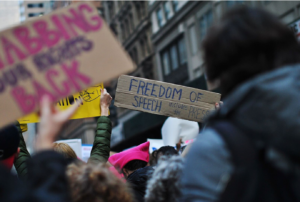
Another press freedom lobbying group, this one representing the Third World media, TWMN (Trade With Me Now), echoes the findings of RWB, saying that: “With reporters attacked and arrested, their incomes falling and media undermined by disinformation and draconian laws, the coronavirus pandemic has compounded the huge difficulties for journalism in sub-Saharan Africa.” Any dictator wanting to act in a dictatorial way now has the perfect excuse and can perhaps receive praise for doing so, even when he (or she) oversteps the mark: “An average 23 of the 48 countries (two more than in 2020) were marked as red or black on the World Press Freedom map, implying that the situation is classified as bad or very bad,” the group wrote. “The coronavirus crisis has made it evident that African journalists’ rôle in nurturing democracies, built on fact-based and pluralist public debate is still far from assured.” Journalists’ work is vital, too. Nothing helps to spread disease and panic about the disease faster than ignorance. However, certainly in Africa, as elsewhere, journalists have faced obstacles to carrying out their work: “While reporting on lockdown measures, one journalist ended up with a broken leg in the Democratic Republic of Congo (DRC),” says the report. “A woman reporter was hit by rubber bullets in South Africa while a WebTV director spent 11 months in prison in Rwanda before finally being released in March last year.” As the English non-conformist preacher, Charles Spurgeon wrote in 1859, “A lie will go around the world while truth is pulling its boots on.” The Harvard report linking COVID-19 with authoritarianism makes the point clearly: “At a time when the world is willing to accept individual sacrifice for the common good, leaving citizens everywhere vulnerable, recognising these threats in imperative. Many measures that have been taken, and many of those that will be taken, are temporary and necessary to fight the virus. Others are neither.”
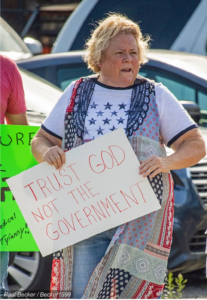
In the United States, far-right militia groups have marched through Washington and other cities to protest against measures to contain the virus. They included the neo-fascist ‘Patriot Front’ and anti-abortion groups. Many of the marchers carried banners, bearing pro-Trump, anti-scientific and right-wing libertarian slogans, such as “Free to Infect Others,” “Trump Won,” “Vaccines are Mass Bio-Weapons” “Resist Medical Tyranny,” “Jesus is My Vaccine” and “No Socialism.” Many members of militia groups have described the attack on the Capitol in January 2021 as “just a protest”, although the protestors, numbering up to 2,500 people, mostly quite heavily armed, were trying to overturn the election result because their candidate didn’t win. The ‘protest’ left five people dead. Some support for the militia groups and fake -news spreading conspiracy theorists like QAnon, has dropped off because QAnon’s prediction that, once in power, Jo Biden would declare martial law clearly didn’t come true.
The militias (there are many in the US, almost exclusively white, ex-army or ex-police and misogynistic) remain an obstacle to effective COVID-19 containment. The Office of Homeland Security and Preparedness for the State of New Jersey issued this interesting but disturbing statement: “Militia extremists arrested between October 7 and 15 for violent plots targeting government officials were primarily motivated by their opposition to government-mandated COVID-19 restrictions.”

They didn’t all get away with it, however, “The FBI charged six individuals with plotting to kidnap Michigan Governor Gretchen Whitmer. The state’s attorney general charged seven others with threatening public officials and supporting plans for terrorist acts, while an eighth individual faces only the latter charge.” Remember, these are people who would argue that they are “defending the US constitution”. In this case, they had discussed kidnap and murder, both of which are against US law, of course, and against the constitution they claim to be defending. “The suspects focused on Whitmer, the governor of their own state, but also discussed targeting Virginia Governor Ralph Northam, referring to both as “tyrants.” Tyrants for trying to keep their citizens alive. Heaven knows how they’d react to a leader like Viktor Orbán.
AN EPIDEMIC OF LIES
Some leaders, for understandable (but misjudged) reasons tried to encourage citizens to get vaccinated by overstating the death rate. It happened in Germany, where in the Hamburg area a reported 11,600 people per 100,000 became 160,000 virtually overnight. German Health Minister Karl Lauterbach blamed it on ‘a software error’. A supposedly Christian website, Health Impact News, has praised three politicians who have spoken out against stringent COVID-19 measures, US Senator Rand Paul, Deena Hinshaw, the Chief Medical Officer of Alberta, Canada, and Australian Senator Malcolm Roberts.
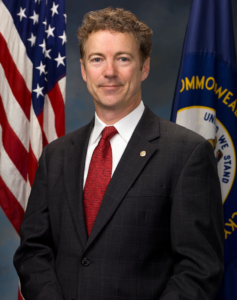
In a talk on Fox News, Rand Paul urged people to ignore the restrictions. “Resist. They can’t arrest us all. They can’t keep all your kids home from school. They can’t keep every government building closed – although I’ve got a long list of ones they should.” Paul has a long history of defying authority, including choosing to eat at a Washington diner that had just lost its liquor licence for flouting pandemic rules. He was accompanied by other senators.
But while people like Paul choose to disregard safety rules, other organisations and companies have come if for criticism for enforcing rules that are, frankly, silly. The Traveller website lists some of the most interesting. Take Virgin Atlantic, for instance. Just before Christmas, a rule was brought in forbidding pilots and cabin crew from eating or socialising together. One assumes they have to meet up and pass each other, even exchange a word or two, while performing their professional duties. The airline says it’s trying to clamp down on what it calls “a party culture”. It’s not the only new set of rules that defy explanation. The President of the Canary Islands, Angel Victor Torres, has introduced a ban on smoking in the street as an anti-pandemic measure. He said a ban was needed because “infected smokers could blow droplets carrying the virus when they exhale.” Presumably they will still exhale, even if they’re not smoking. Brazil’s president Jair Bolsonaro has banned the use of pillows on aircraft because they can harbour viruses (one supposes they can be washed and/or disinfected, too?).
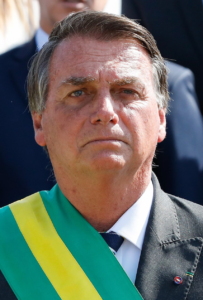
Cambodia insists that people arriving there must not only prove they’ve had a negative COVID test but must also hand over a deposit of $3,000 (€2,650) to cover the cost of any COVID-19 services a traveller may require during a stay. That will do wonders for the tourist trade. Kosovo, meanwhile, clearly doesn’t welcome pensioners. The authorities there have introduced a curfew from 10.30 pm until 5 o’clock the following morning, while those over the age of 65 are only permitted to leave their place of residence between the hours of 5am to 10am and 6pm to 9pm.” New York wants everyone to wear a face mask in public and has suggested that people should even wear them while having sex. Interestingly (but less kinkily, perhaps) Russia and Ukraine have insisted that travellers on public transport wear not only a mask but also rubber gloves. In South Africa, shoe shops have been told not to sell open-toed footwear, although I don’t recall toes being talked about as a likely COVID risk.
STAY RIGHT THERE!
Elsewhere, some of the more draconian measures proposed were overturned by the local parliament. These include a proposal in Bulgaria for jailing anyone spreading disinformation. But perhaps it’s the mobility restrictions that have been most obvious. The Centre for European Policy Studies (CEPS) has produced a report. “Domestic mobility restrictions have ranged from nationwide and localised lockdowns to measures restricting interregional travel, nationwide and regional curfews, quarantines and measures targeting the mobility of specific groups,” it says. “Countrywide lockdowns imposed in the early phase of the pandemic disregarded the largely regional and local development dynamics of the COVID-19 crisis.” CEPS also hints that in some cases, governments have gone a little too far.
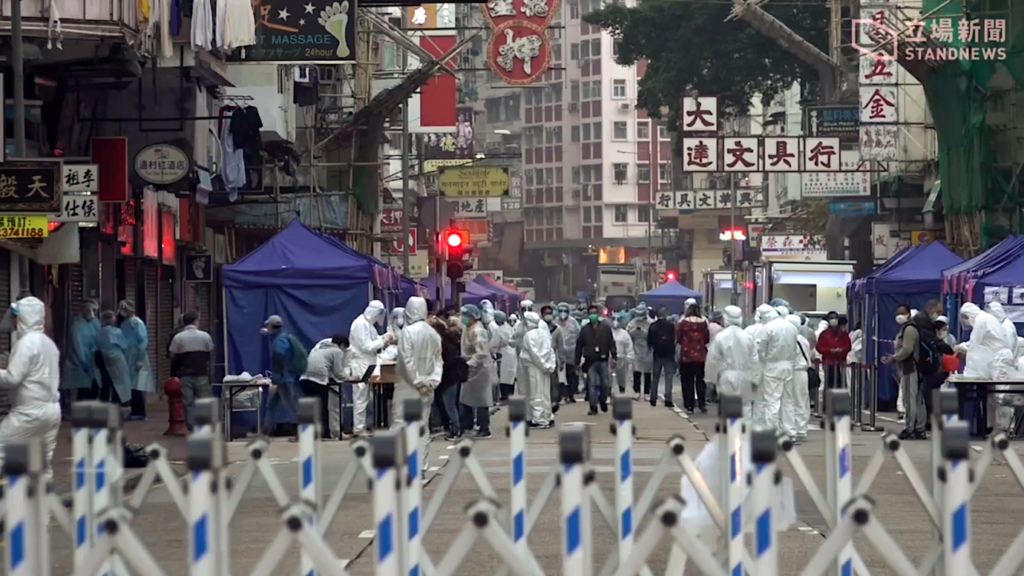
“There is a clear trend towards the criminalisation of non-compliance with COVID-19-related mobility restrictions. In terms of the sanctions associated to non-compliance, several Member States have introduced specific penal provisions in their criminal codes or health codes.” These decisions would seem to go against a European Parliament resolution of April 2020, urging: “the Member States to adopt only necessary, coordinated and proportionate measures when restricting travel or introducing and prolonging internal border controls, after careful evaluation of their effectiveness to address the public health issue and based on existing legal provisions, namely the Schengen Borders Code and the Freedom of Movement Directive and in full observance of the Charter of Fundamental Rights of the European Union.” Even so, several did introduce dramatic restrictions which are now being gradually lifted. On 25 January, EU Ministers of European Affairs established new rules for travelling across the Union, with only a valid COVID passport being required, regardless of the traveller’s country of origin, and with quarantine restrictions removed and no need to provide a negative COVID test on arrival.
The pandemic has even impacted on judicial procedures in Europe. Several member states have suspended court hearings or postponed their deadlines and changed their working methods, resorting to written procedures or meeting on-line in settings more akin to video-conferencing. But in most countries, restrictions are being gently eased, sometimes despite a surge in cases of the Omicron variant. Not everywhere, however.

The British government, under cover of controlling the spread of the virus, proposed a number of measures that the country’s upper chamber, the House of Lords, subsequently rejected. Many of the proposed measures were added to a planned Police, Crime Sentencing and Courts bill at the last minute, too late to be debated in the House of Commons. The measures included the power to stop and search anyone attending a protest, or even someone walking past such a protest, without the need for ‘reasonable suspicion’ of crime or criminal intent. The measures would also have empowered the courts to ban people from attending future protests, even if they had not been convicted of any previous offences. The government called them ‘precautionary powers’, which are normally used to prevent terrorism or serious crime, rather than peaceful protests. Police could also intervene if the protest was judged to be ‘too loud’. Some critics have suggested the government is trying to turn scenes of protest into crime scenes. It will, though, help to prevent or at least discourage gatherings where the pandemic could be spread, I suppose.
The new powers would also have included changes to the Official Secrets Act, increasing sentences for those – including journalists – who make disclosures the government doesn’t like. The government says that: “there are cases where an unauthorised disclosure may be as, or more, serious in terms of intent and/or damage.” Don’t criticise this government, in other words, or reveal facts we find uncomfortable, or you may go to jail. The UK government has also promised a “more punitive” approach to asylum seekers and benefit claimants. It promises a future Britain that few citizens may recognise, but it could save its ministers from embarrassing revelations. At least Mr. Orbán would understand. And despite the defeat in the House of Lords, the UK government has said it will reintroduce its proposed new measures in full. Isn’t it amazing how much you can hide behind something that is only 50 and 140 nanometres wide?

